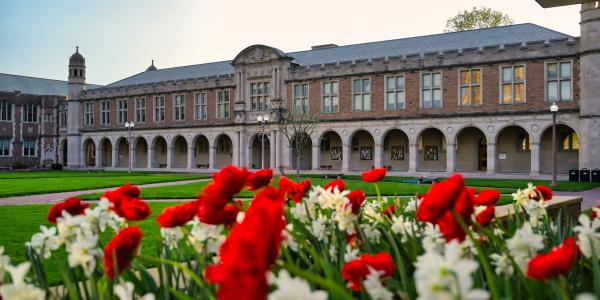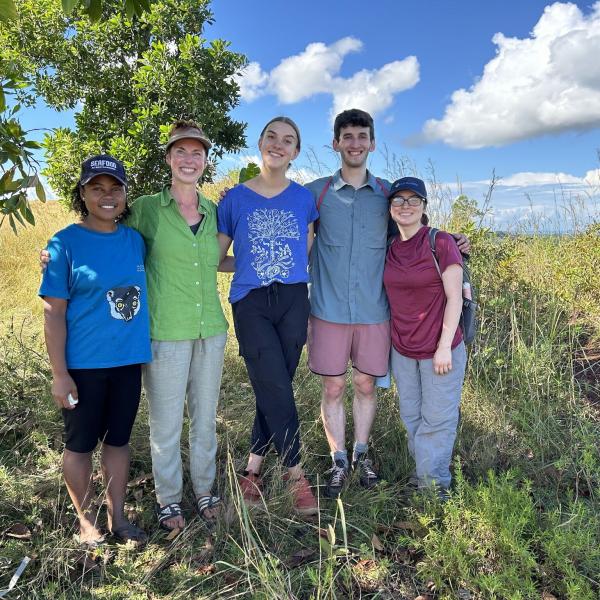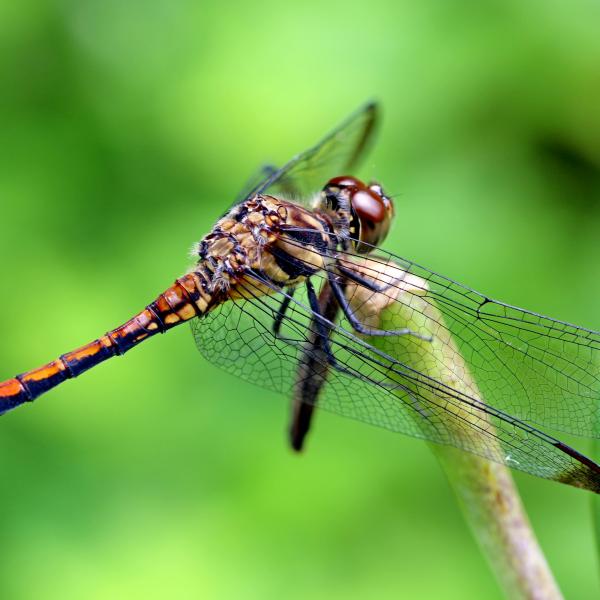Pre-College Programs offer unique summer experiences for middle school and high school students, as well as their instructors.
We all may find ourselves – especially in the middle of another cold and damp January day – dreaming of summer. For Becki Baker, the director of Pre-College Programs, those summer dreams and plans will result in a series of innovative programs designed to give middle school and high school students their first glimpse into college life and academics. Right now, Baker and her colleagues are actively preparing and working toward recruiting, hosting, and facilitating a variety of academic experiences for pre-college students.
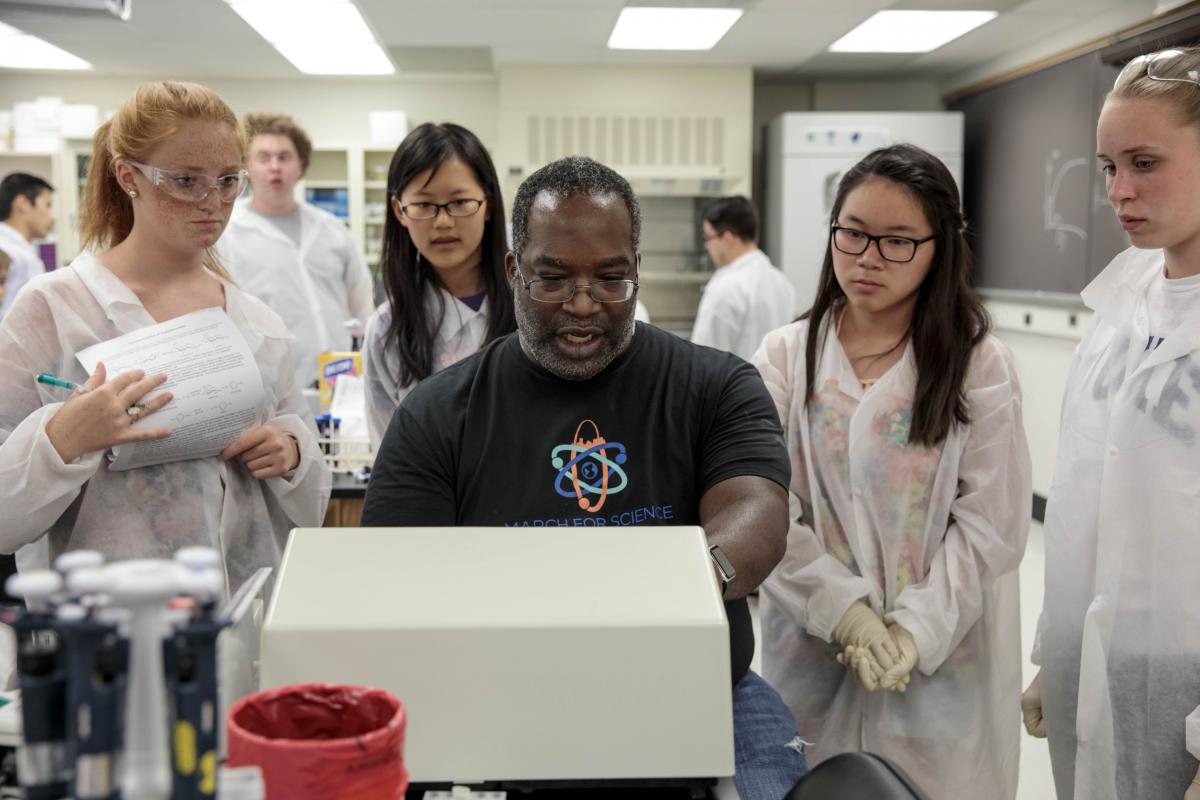
of pre-college students in the lab in 2017.
Pre-college opportunities at Washington University have undergone a number of changes since their introduction in 1984. That first summer, Arts & Sciences welcomed just over 30 students to campus for the High School Summer Scholars Program to enroll in undergraduate course work and experience campus life at WashU. Almost four decades later, students can still attend the flagship Summer Scholars Program as well as many other noncredit and for-credit experiences.
“It’s important for our pre-college programs to stay innovative," Baker said. "We value feedback from our students, parents, and faculty and follow industry trends to ensure we are offering challenging and exciting programming that aligns with the overall mission of WashU and Arts & Sciences.” That includes the introduction of the Middle School Summer Challenge in 2015, a direct response to increased demand for a summer program for motivated younger students. In 2019, the College of Arts & Sciences became the administrative home of Pre-College Programs, which were previously housed in University College.
In 2020, due to the ongoing COVID-19 pandemic, the pre-college team moved all programming completely online and introduced a new set of noncredit Exploration Courses. The hope is that some of the programs will be returning to in-person instruction in 2021, but Baker and her team are prepared to run programs remotely again. “Last summer had many challenges, but it offered us a chance to think outside of the box. We couldn’t have made last summer happen without our incredible pre-college faculty and staff,” Baker said. “We expect to be offering online programming, as well as commuter and residential programming, moving forward.”
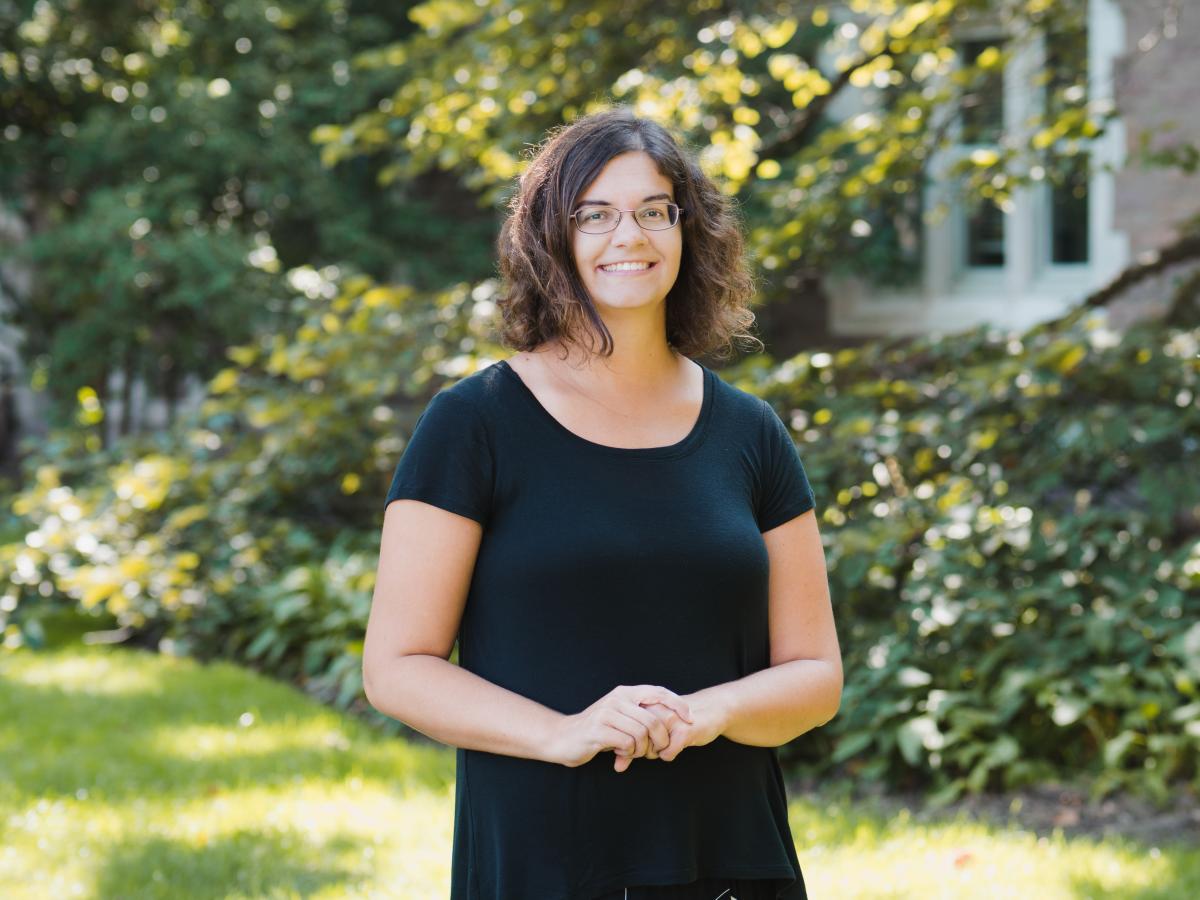
Kate Bloomquist, a senior lecturer in the College Writing Program, initially got involved with Pre-College in 2014. “A friend who had been teaching pre-college courses told me about some of the innovative programming they had been doing, and that if I wanted to work with some eager students, ones who are just reveling in being in college for the first time, I should think about working with Pre-College over the summer,” Bloomquist said. She’s been involved ever since, teaching classes over the course of several summers in communications, personal narrative writing, and creative writing.
The quick pivot to remote instruction in 2020 gave Bloomquist and other faculty the chance to think creatively about ways to replicate the camaraderie that happens so naturally on campus, especially for her creative writing class. “One of the things I was really worried about losing was the sense of community we build among high school students who may not be used to having other peers around that are interested in creative writing,” Bloomquist shared. “So, one of the things we did was have Zoom Open Mic sessions, almost like you would have at poetry readings, where students would read a piece in progress out loud and get feedback from other students.”
Amanda Albert, an instructional specialist in Arts & Sciences who helps instructors develop innovative remote and technology-assisted instructional content, points out that the flexible two-week format of the pre-college programs also offers an opportunity to try new things in the classroom. “It’s sort of a like a sandbox. You can try new approaches to teaching or tweak something small because you’re working every day with students over the course of a few weeks and can get a lot of feedback in a shorter time frame,” Albert said.
“Last summer had many challenges, but it offered us a chance to think outside of the box. We couldn’t have made last summer happen without our incredible pre-college faculty and staff.”
These programs, and the community and connections they foster, also help recruit talented students to attend WashU as undergraduates. Mary Katherine "MK" Townsend participated in one of the pre-college programs, the Pre-Medical Institute, in 2016. “Honestly, I am not sure if I would have considered applying to WashU if it wasn’t for being part of the Pre-College Program. My time on campus gave me a glimpse of what college life could be and a feel for the WashU campus. I didn't feel out of place. That is in part what made me consider WashU when applying to colleges,” MK said. In addition to exposing them to the style of college life, Pre-College Programs also prepare students for college success by honing critical thinking skills and developing their research and writing abilities.
“These programs are an important way to get talented, enthusiastic students connected to the WashU community and learning with us," said Jennifer Smith, Dean of the College of Arts & Sciences. "Becki, her team, and our A&S instructors do so much to provide a mind-opening experience for students — and the growth of these programs is a testament to their success.”
Pre-College Programs offer a range of opportunities for students who seek research experiences, college credit, and more. For information on available programs, the application process, and open job opportunities, visit the Pre-College Programs website. Interested students are invited to join Becki Baker Feb. 15 for a virtual College Coffee Chat.
